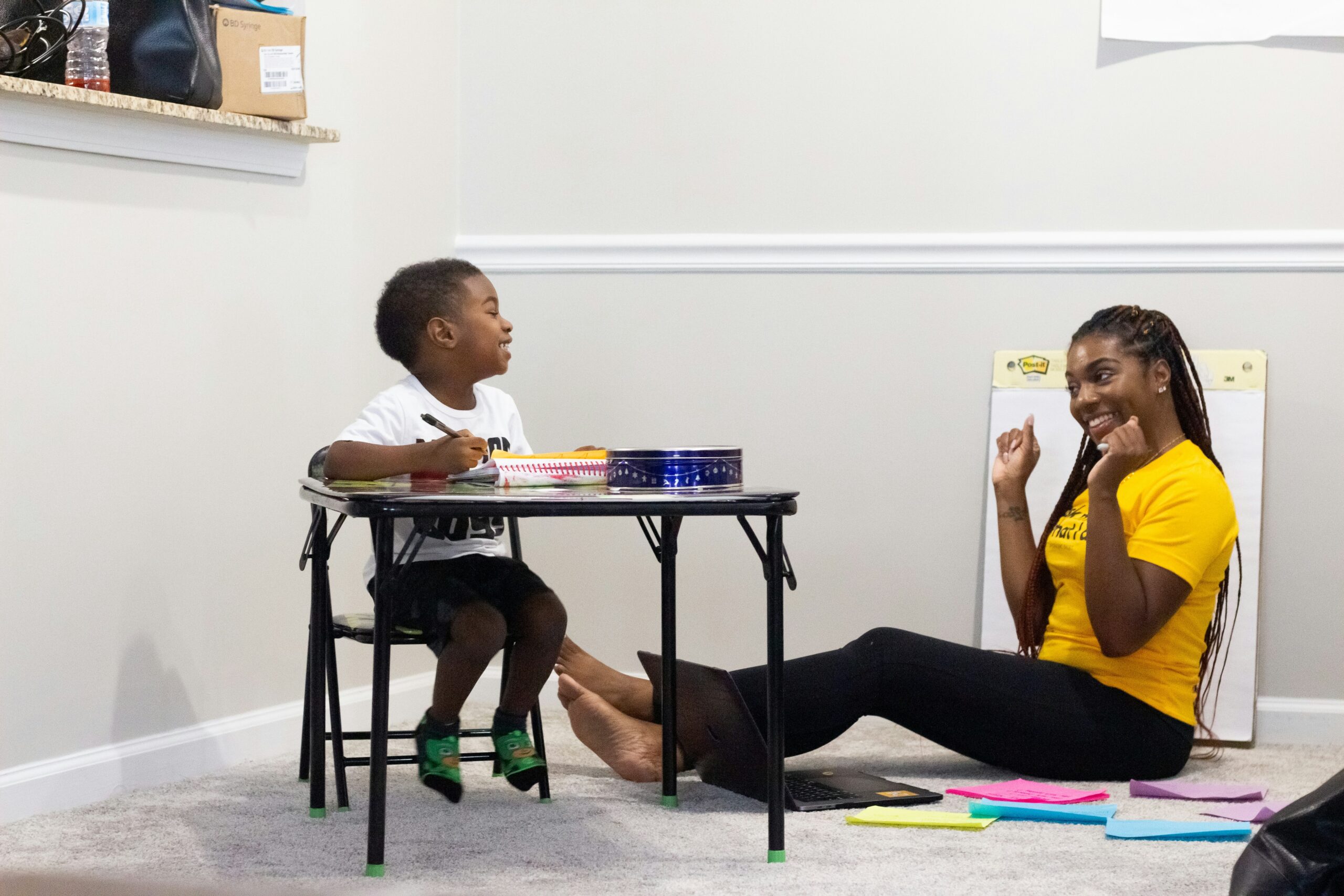When parents help with homework, kids learn better, and feel more confident – not to mention it’s an activity that can bring parents closer to their kids. But how should you go about it? This post is all about giving parents helpful tips and tricks to support their kids with homework. By sharing what I’ve learned as a parent and teacher, I want to help parents create a positive homework routine, encourage their child’s independence, and make learning fun.
The goal is to help parents connect better with their kids and help them succeed in school.

Table of Contents
Should Parents Help with Homework?
Experts say that parents who help with homework not only enhance their children’s learning but also demonstrate the importance of education.
When kids are having a hard time in school, parents naturally try to help more by tutoring and providing effective study tools to support their learning. As they become more involved in their kids’ education, offering assistance with homework as a means of providing additional support. Here are a two good reasons why:
It Encourages Responsibility
When parents show they care about their children’s homework and offer help when needed, it teaches them to be responsible. Indeed, thanks to this support, children understand that they are accountable for their own academic success. This helps them learn to manage their time and stay organised to take initiative in their learning journey.
It Encourages Their Confidence and Build Parent and Child Bond
Helping with homework can also be a chance for parents and kids to bond. It allows parents to create special moments of sharing and interaction, and above all to better understand their children’s interests and strengths. Their children, for their part, realise that they have someone to help them, which gives them confidence and encourages them to take on challenges.
But helping with homework is more about giving them encouragement and setting high expectations than just doing the homework for them. In other words, parents should find the right balance.

10 ways Parents can Help with Homework
Homework plays a crucial role in reinforcing classroom learning, fostering independent thinking, and developing essential skills like time management and self-discipline. Children may struggle with homework due to procrastination, understanding issues, or lack of motivation. Here are 10 ways to help with homework, fostering enthusiasm in children.
1. Create a Conducive Homework Environment
Find a quiet spot with good lighting to help your child concentrate on homework. It could be a corner of their room or the kitchen table. Avoid places with distractions like TV or noisy siblings. I’ve seen how important this is for focus.
Make sure the area is comfy but not too comfy – you want them alert, not sleepy. Adding personal touches like their favourite motivational quotes or some artwork can make the space inviting and positive and make homework feel less like a chore.
2. Establish a Homework Routine
Consistency is key to getting homework done. Choose a regular time for it, whether it’s right after school or later in the evening. This routine helps kids know what to expect and makes homework feel like a regular part of their day.
3. Set Up a Binder Organisation System
Keeping homework organised can make a big difference in how smoothly things go. One way to do this is with binders. You could try separate binders for each class or one big binder with dividers.
Inside, include folders and extra paper for notes. Having everything in one place makes it easier for your child to find what they need and keep track of their assignments. It might take a little time to set up, but it’ll save time and stress in the long run. Plus, it’s a good habit to learn early on.
4. Set Realistic Expectations
Be realistic about what your child can achieve with homework. Every kid is different, with their own strengths and weaknesses. As a parent, I’ve learned to understand and accept these differences. Don’t put too much pressure on your child to be perfect – it’s okay if they’re not top of the class.
Instead, focus on their effort and improvement. Celebrate their successes, no matter how small, and encourage them to keep trying their best.
5. Tailor Your Approach to Match Your Child’s Learning Style
Every kid learns in their own way, so adjust how you help with homework based on how they learn best. Some kids like seeing things visually, whilst others learn better by doing or listening.
If your child is a visual learner, pictures or diagrams can help them understand better. For hands-on learners, try doing activities together. And if they learn by listening, talk through things with them. Adapting to their style can make homework more effective and less frustrating.
6. Communicate with Teachers
Talking to your child’s teachers can give you a lot of helpful info about how they learn and how they’re doing in class. Teachers see them every day and can notice things you might miss at home.
In the same way, share what you’ve noticed about your child’s learning style and any concerns you have. You can then work together to support your child’s learning at home and make a big difference in helping them succeed.
7. Provide Guidance Without Doing the Work for Them
It’s tempting to just give your child the answers when they’re stuck on homework, but it’s better to guide them instead. Kids learn best when they figure things out on their own. Instead of just telling them what to do, ask questions to help them think through the problem.
Let them try to solve problems on their own first before jumping in to help with homework. Give praise and encouragement for their efforts, even if they make mistakes.
8. Know When to Step Back
In line with helping your child be more independent, you should know when to back off and let your child take charge. Research shows that too much parental involvement with homework can actually hurt their grades.
Give your child the space, but be there if they need help with homework. Trust that they can handle it, and let them know you believe in them.
9. Recognise Downtime and Play
Take breaks during sessions to avoid getting too tired or stressed can be a efficient way to help with homework. Plan short breaks after each assignment or after a certain amount of time, depending on what works best for your child. These breaks can be a chance for them to relax, stretch, or have a snack.
10. Plan Fun Activities After Homework
After homework is done, it’s time to have fun! Plan activities as a family to celebrate finishing work. Playing games, watching a favourite show, or going out for a treat – these activities can be a reward for hard work.
And by doing fun things together, you’re showing your child that hard work pays off and giving them something to look forward to after finishing their homework.
In Conclusion
Providing help with homework can be a rewarding opportunity to nurture their academic growth and strengthen your bond. By incorporating the ten strategies outlined in this blog post, parents can create a supportive environment that fosters learning, independence, and confidence. In this way, customised student planners can help to reinforce organisation and independence by adapting to your children’s needs, enabling them to manage tasks, deadlines and objectives effectively.
Learn more about our planners
As well as helping you to improve your students’ school life, our student planners offer you, and your students ,many more benefits, such as better planning and organisation, which you can discover by ordering your visiting our dedicated page.